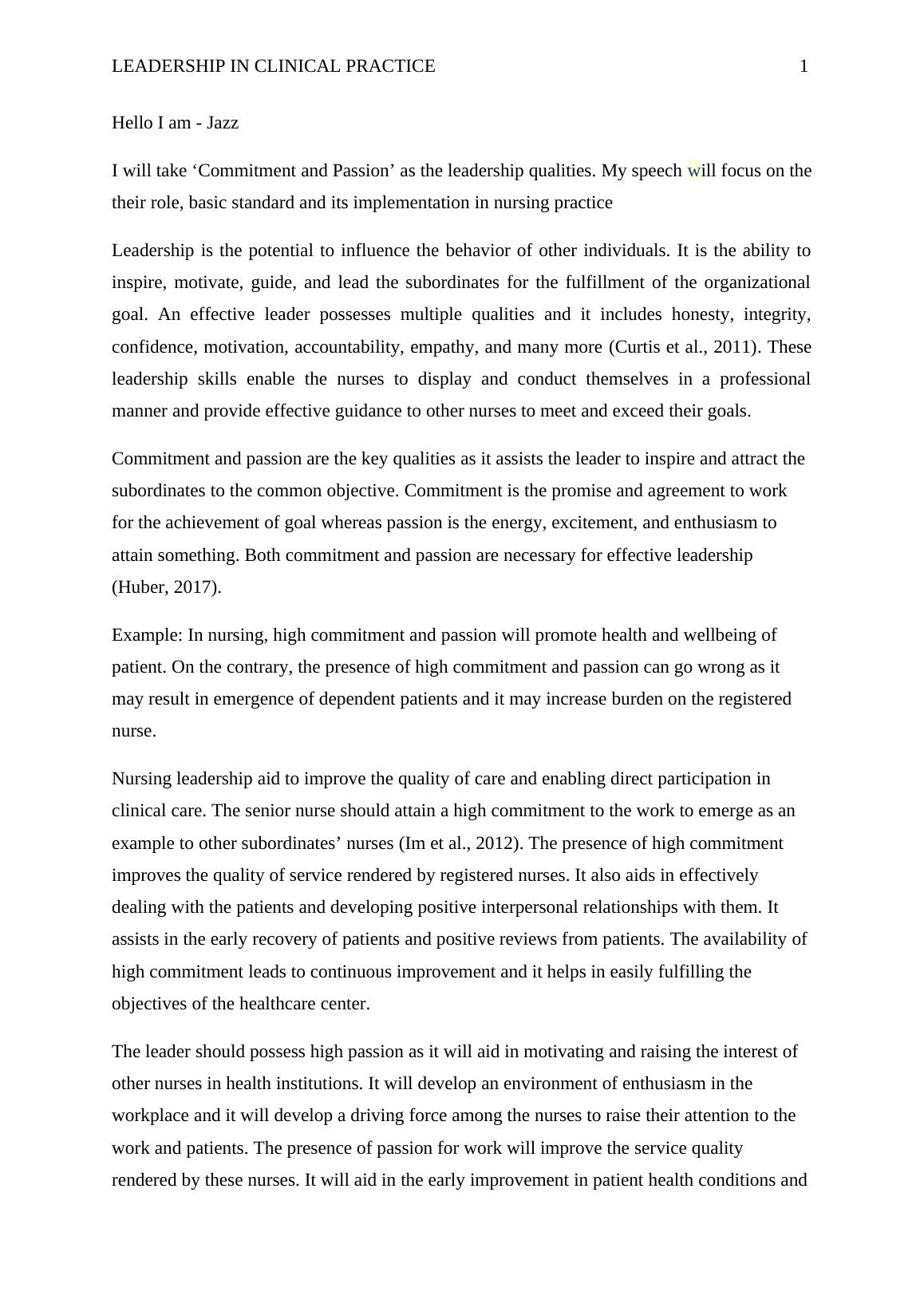Leadership in Clinical Practice and Management
Discussing the importance of leadership qualities in the nursing profession and how effective communication is a key element of leadership.
4 Pages772 Words18 Views
Added on 2022-08-13
Leadership in Clinical Practice and Management
Discussing the importance of leadership qualities in the nursing profession and how effective communication is a key element of leadership.
Added on 2022-08-13
ShareRelated Documents
End of preview
Want to access all the pages? Upload your documents or become a member.
Application for Registered Nurse Early Graduate Program
|4
|1130
|19
The Assignment on Nursing Leadership in Clinical Practice
|14
|1021
|7
Clinical Leadership Assignment
|7
|2047
|172
Nurse as a Profession
|4
|717
|143
Leadership - Case Study Analysis
|11
|2925
|24
Nursing Leadership: What Is It
|10
|2630
|11


